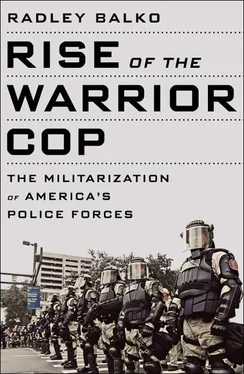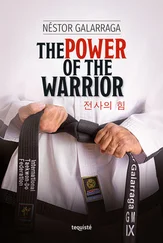That heavily armed assault forces are sent to perform such tasks ought to shock the conscience. The people making these kinds of decisions should lose their jobs. More broadly, the amount of force the government uses to enforce a given law should be based on a reasonable assessment of the threat posed by the person suspected of committing the crime, not by what sort of message the government wants to send about how seriously it takes whatever crime it happens to be enforcing.
Transparency
Cheye Calvo’s bill in Maryland is a good start toward greater transparency. Other states should duplicate it. But there are other policies that would make police departments more transparent and less isolated and detached from their communities. The remarkable advances in and democratization of smart-phone technology have enabled a large and growing portion of the population to record the actions of on-duty police officers. Rather than fighting it, police officials and policymakers ought to embrace this development. Legislatures should pass laws that not only clearly establish a citizen’s right to record on-duty cops but provide an enforcement mechanism so that citizens wrongly and illegally arrested have a course of action. As even many police officials have pointed out, such policies not only expose police misconduct, leading to improvements, but can also provide exonerating evidence in cases where police officers have been wrongly accused.
All forced-entry police raids should be recorded in a tamper-proof format, and the videos should be made available to the public through a simple open records request. If the political will to do so existed, this could be done efficiently and inexpensively. Even better: equip the officers participating in a raid with cameras mounted on their helmets, jackets, or guns. Not only would recording all raids help clear up disputes about how long police waited after knocking, whether police knocked at all, or who fired first, but the knowledge that every raid would be recorded would also encourage best practices among the SWAT teams. Additionally, recordings of raids would provide an accurate portrayal of how drug laws are actually enforced. It’s likely that many Americans aren’t fully aware of just how violent these tactics can be. Perhaps many would still support tactical raids for drug warrants even after being exposed to videos of actual drug raids. But if the drug war is being waged to protect the public, the public should be able to see exactly how the war is being waged.
Police departments should track warrants from the time they’re obtained to the time they’re executed, in a database that’s accessible to civilian review boards, defense attorneys, judges, and, in some cases, the media (acknowledging that the identities of confidential informants need not be revealed). Botched raids should be documented, including warrants served on the wrong address, warrants based on bad tips from informants, and/or warrants that resulted in the death or injury of an officer, a suspect, or a bystander. Police departments should also keep running tabs of how many warrants are executed with no-knock entry versus knock-and-announce entry, how many required a forced entry, how many required the deployment of a SWAT team or other paramilitary unit, and how many used diversionary devices like flash-bang grenades. They should also make records of what these raids turned up. If these tactics are going to be used against the public, the public at the very least deserves to know how often they’re used, why they’re used, how often things go wrong, and what sort of results the tactics are getting.
Local police departments that receive federal funding should also be required to keep records on and report incidents of officer shootings and use of excessive force to an independent federal agency such as the National Institute for Justice or the Office of the Inspector General.
We also need easy-to-find, publicly accessible records of judges and search warrants (and where applicable, prosecutors). The public deserves to know if all the narcotics cops in a given area are going to the same judge or magistrate with their narcotics warrants, or if a given judge hasn’t declined a warrant in twenty years. As more and more courts use computer software to process warrants, it will get easier to compile this sort of information and make it available to the public.
Community Policing
Police departments and policymakers should embrace real community policing. That doesn’t mean sending off millions of dollars in federal grants that merely say “Community Policing” on the envelope. Nor does it mean calling the deployment of SWAT teams to clear out entire neighborhoods “community policing” because such actions involve both “police” and a “community.” Instead, it means taking cops out of patrol cars to walk beats and become a part of the communities they serve. It means ditching statistics-driven policing, which encourages the sorts of petty arrests of low-level offenders and use of informants that foment anger and distrust.
“The emphasis on statistics in the war on drugs is really what encourages the Fourth Amendment cheating,” says Stephen Downing, the former deputy chief at the LAPD. “Everyone wants to be successful at what they do. Police officers are no different. But we have this drug war. And in order to get the goods—the grants and such, which earn you good reviews and promotions—you have to meet your quotas. So you want to get in before the drugs are flushed down the toilet. So you lie about what goes on at the door. You take shortcuts to get your warrant before the drugs are moved. It’s the bad policy that forces that to happen. The big shots will say to the public, ‘We have all these rules and we enforce them. There are no quotas.’ But then internally they’ll say, ‘Why do you only have two arrests this month?’ It’s a system that creates cheaters. The quota system just doesn’t work without cheating.” 23
Changing Police Culture
Changing a culture sounds like a tall order. And it probably is. “I think there are two critical components to policing that cops today have forgotten,” says the former Maryland cop Neill Franklin. “Number one, you’ve signed on to a dangerous job. That means that you’ve agreed to a certain amount of risk. You don’t get to start stepping on others’ rights to minimize that risk you agreed to take on. And number two, your first priority is not to protect yourself, it’s to protect those you’ve sworn to protect. But I don’t know how you get police officers today to value those principles again. The ‘us and everybody else’ sentiment is strong today. It’s very, very difficult to change a culture.” 24
But high-ranking police officials and the policymakers who oversee them could start by simply not perpetuating the problem. Consider those recruitment videos discussed previously. Think back to high school or college and consider who among your classmates would have been excited by that sort of video. Now think about who among your classmates would have been attracted to a video depicting cops walking a beat, attending meetings of neighborhood groups, or learning the skills necessary to deescalate a potentially dangerous situation instead of shooting the problem away. These are two very different personality types.
“It’s really about a lack of imagination and a lack of creativity,” says Norm Stamper. “When your answer to every problem is more force, it shows that you haven’t been taught and trained to consider other options.” 25
The thing is, when law enforcement officials face suspects who present a genuine threat to officer safety, they do tend to be more creative. When the FBI finally located Whitey Bulger in 2010 after searching for him for sixteen years, the reputed mobster was suspected in nearly twenty murders and was thought to be armed with a huge arsenal of weapons. Of all the people who might meet the criteria for arrest by a SWAT team, you’d think Bulger would top the list. He was also aging, in poor physical health, and looking at spending the rest of his life in prison. If ever there was a candidate to go out in a blaze of cop-killing glory, it was Whitey Bulger. And yet instead of sending a tactical team in to tear down Bulger’s door, the FBI did some investigating and learned that Bulger rented a public storage locker. They called him up, pretending to be from the company that owned the facility, and told Bulger someone might have broken into his locker. When he went to the facility to investigate, he was arrested without incident.
Читать дальше












